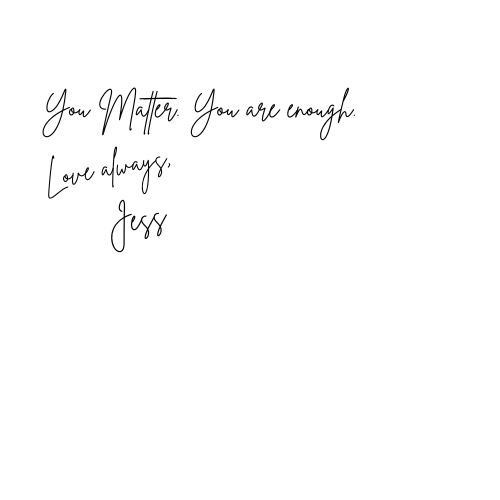When Your Truth Doesn’t Fit Their Comfort Zone, It’s Okay to Stand Firm Anyway
I found a sign at a thrift store the other day and I had to have it. It was such a huge whoa moment for me - I felt so empowered. It said:
“I can explain it to you, but I can’t understand it for you.”
It hit something deep in me, something I’ve struggled to name for a long time.
There’s a quiet kind of heartbreak that comes with trying to explain your mental health struggles, and feeling like no one really hears you.
It’s more common than people realize.
We want to be understood. It’s human nature. Especially when we’re talking about something as vulnerable and invisible as mental health. You want someone to hear you and say, “I get it. That makes sense.”
But what happens when they don’t?
What happens when you're explaining your trauma to someone who hasn’t faced theirs?
What happens when you’re naming patterns and they only see offense?
What happens when your mental health needs are met with defensiveness, dismissal, or discomfort?
It creates a kind of loneliness that’s hard to explain. A feeling like you're speaking a different language entirely.
So many people living with anxiety, depression, trauma, or other mental health challenges find themselves caught between a deep desire to be understood and the painful reality of being dismissed, minimized, or met with discomfort.
You try to name what you're going through.
You try to describe the weight, the fog, the exhaustion.
You explain, carefully and honestly… and still, you're met with blank stares, yeah but’s, or silence.
It’s not always because people don’t care.
Sometimes it’s because they don’t have the tools to understand.
And that disconnect can feel devastating.
Values, Beliefs, and the Line We Don’t Want to Cross
It becomes even more complicated when the disconnect isn’t just about understanding, but about values. Mix that in with your mental health where you’ve worked really hard to find yourself, your joy, and what really matters to you and it can quickly become confusing.
Maybe you value emotional honesty, vulnerability, and growth… and they value silence, surface-level conversation, or staying “strong.”
Maybe you're working hard to break harmful generational patterns, and they’re clinging to what’s familiar.
What I have learnt is that it’s possible to love people who hold different values, it’s also okay to recognize when your core beliefs no longer align.
That doesn’t make you cold.
It doesn’t make you dramatic.
It makes you human.
Because the truth is, it takes energy to stay in constant conversation with someone whose worldview erases or invalidates your experience.
And it’s okay if you don’t have the capacity to do that anymore.
You Can Love Them, and Still Step Back
There’s this idea that love means staying—staying in the room, staying close, staying available.
But sometimes the most loving and honest thing you can do… is step back.
To stop explaining what’s already been said.
To stop bending your truth to make someone else comfortable.
To stop carrying the responsibility for their understanding.
Healing isn’t about forcing people to meet you where you are.
It’s about honoring yourself enough to stop shrinking.
Final Thoughts
If you’re feeling unheard, misunderstood, or emotionally drained from trying to explain your mental health to people who don’t get it, please know this:
You’re not broken.
You’re not alone.
And you’re certainly not obligated to keep proving yourself to people.
You can stop explaining.
You can set boundaries.
You can choose peace without guilt.
Because some people might never understand what you’re going through.
And that doesn’t make your experience any less real.

